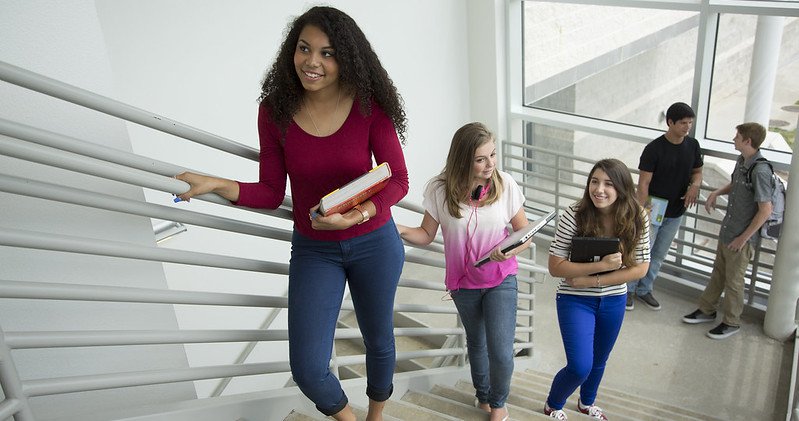
Technological advances may help keep us connected, but they cannot replace face to face communication. Community organizers and activists know this. Paulo Freire, the great Brazilian educator, knew this. And anthropologists know this. We get to the field and find out that back in our offices and in our seminars we were asking the wrong questions. We discover that what we read in books, news reports, or opinion pieces does not represent the experiences or opinions of the people on the ground. We realize that the important conversations take place after the formal interview ends, walking through the streets, sitting on park benches, watching the children play, or behind the stalls at the market.
The myth of law and order
Like the people whose murders sent today’s protestors to the streets, the protestors have been met by brutal policing tactics, militarized responses, and threats of more oppressive violence. They have come out in massive numbers risking their lives in the midst of an on-going pandemic. Do not imagine for a single minute that the police state and the end of the university are not connected.
What is policing for, after all? What is the purpose of the university?
We might have come to believe the myth of law and order: the idea that laws are there to protect all of us, to maintain calm and clarity so that we know what to do and can all go about our daily lives. For the myth to take hold, it has to have elements of truth. We – at least some of us – must feel protected by the laws upheld by policing and the criminal justice system. But the purpose of designating particular acts as ‘criminal’ is more closely related to protecting the social hierarchy and economic system than upholding the rights of each citizen. ‘Crime’ is always a socially constructed category whose primary purpose is to protect the social order. Recall that the word “order” also means to sort and arrange. What counts as ‘criminal’ in our society are those acts that are seen as threatening to private property, to profit, and to the accumulation of wealth by the few at the top.
The rich get richer and the poor get prison. The human subject that social systems depend on is one which is suited to the systems’ purposes, to the state’s projects and its economic system. In the case of the contemporary United States this means an endlessly entrepreneurial, desiring self, oriented to infinite consumption, generating surplus in concert with the prospect of endless growth of the economy. Poor people are not suited to such projects. It is no mistake that their actions become categorized as “criminal” and dangerous. It is no mistake that they fill up the jails and prisons, which themselves have now become for-profit businesses. Of course, poverty and race are not always isomorphic. Racism – like xenophobia, antisemitism, homophobia, Islamophobia, misogyny and more – takes on a devastating life of its own. All these “dangers” promote fear and hatred in an economy where precarity has become the norm for so many people.
The university, danger and terror
But the university can potentially be dangerous to this order of society. Or, at least certain elements of the university can be risky for social order and stability. Those of us who teach about racism and structural violence provide the tools of analysis to understand the “banality of legal,” and the trouble with categories like “criminal” and “terrorist”. We potentially pose a threat to the order of things.
In my college of liberal arts and sciences, the largest proportion of external funding comes from the Department of Defense. Some of this funding is for the development of better military hardware. Some of it is for the study of “terrorism.” But we who question the designation “terrorist” and point for example to domestic state terror, lack of health care terror, food desert terror, economic terror, gendered and racialized terror, are not eligible for such funding. The university is increasingly dependent on external funding.
Large private corporations will fund projects that advance their interests. They will, for example, help develop programs that support marketing and surveillance, profit and discipline. But our work – both teaching and research – does not support state or corporate projects. We are a threat unless we remain very small and serve merely as a figleaf that protects the myths of equal opportunity and justice for all.
This pandemic will only increase the speed and intensity of the growing police state. Before you know it, we in the humanities and we who teach critical thinking, and we who analyze the brutality of the systems in which we live, will be pushed past our presently marginalized positions and discarded altogether as the universities become nothing but digitalized training organizations whose only role is to staff the machine.
The university at risk
Our knowledge and expertise will be commodified and homogenized. The University as we know it, or have known it, is at risk. If we participate in trying to prove that online education is just as good as teaching in person, we participate in our own demise. There have already been moves to promote online instruction by for-profit organizations as we’ve seen with the MOOCs from places like Harvard and MIT. If we move to all on-line, we – the classroom instructors – will become superfluous. Big corporations will make fancy, technologically advanced courses that will be administered by an underpaid workforce. Our course content will be taken as the property of the university or sold, again, to private educational corporations. And the beauty and benefits of people meeting and exchanging ideas will be lost.
PrintJoyce Dalsheim | Radio Free (2020-06-29T12:07:06+00:00) Police states, pandemic, and the end of the university. Retrieved from https://www.radiofree.org/2020/06/29/police-states-pandemic-and-the-end-of-the-university/
Please log in to upload a file.
There are no updates yet.
Click the Upload button above to add an update.